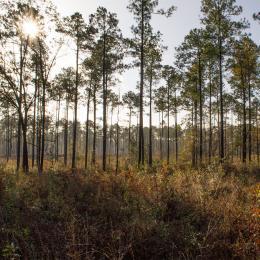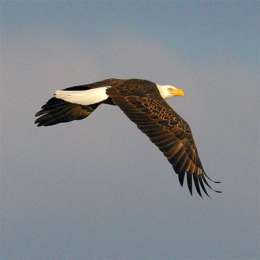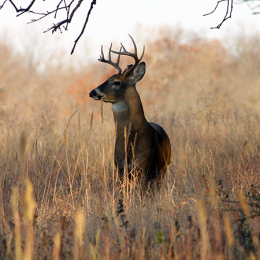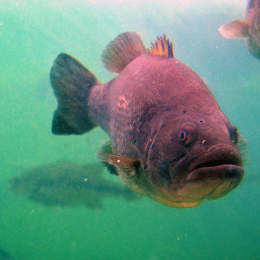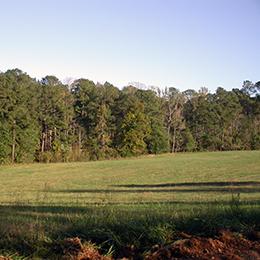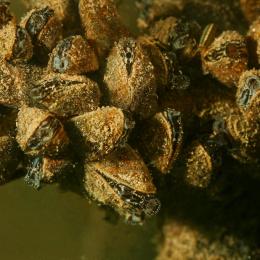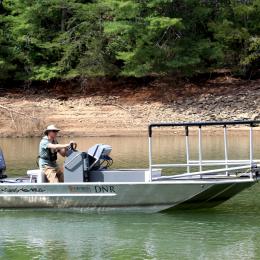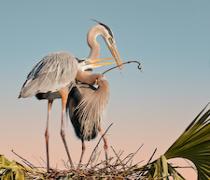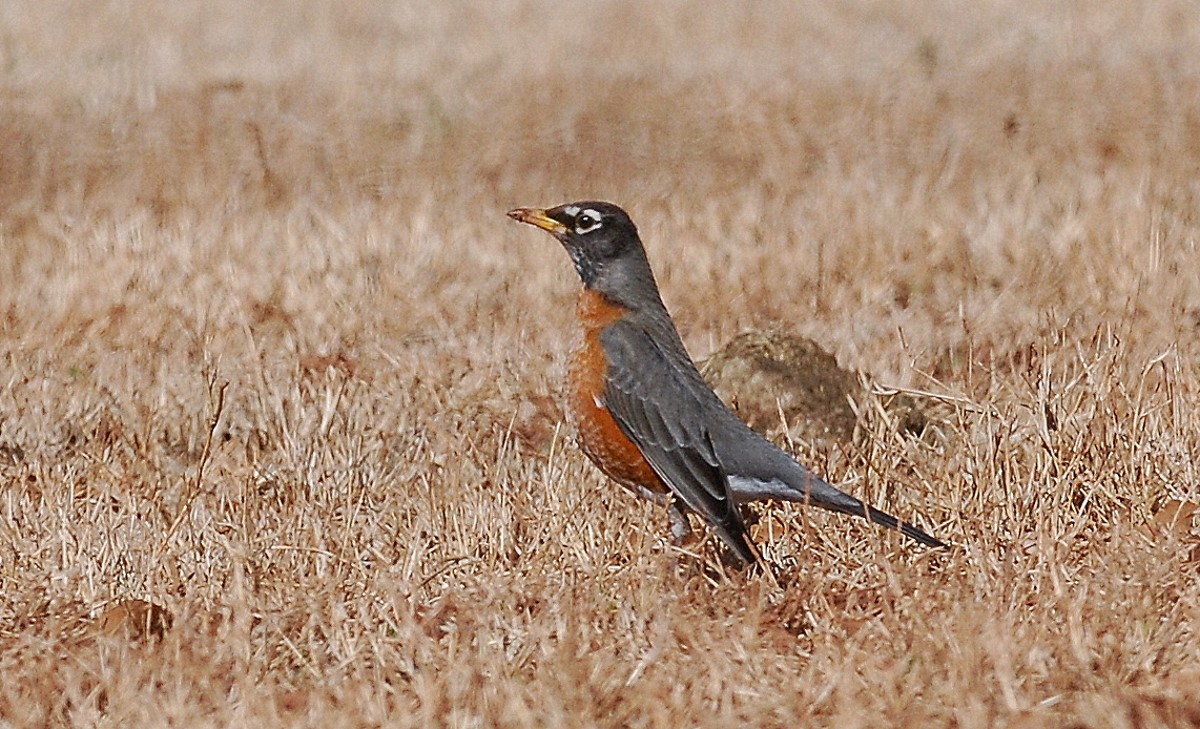
By Terry W. Johnson
Whenever we talk about what makes spring such a beautiful time of the year, invariably the discussion centers on virtues such as the pleasing scent and kaleidoscope of colors displayed by spring flowers, the fresh, pale-green color of the foliage, and the pleasant weather. Rarely is the dawn chorus performed by some of the bird world's most accomplished vocalists mentioned.
On the surface, this may seem odd, as it is Mother Nature's most extravagant musical production of the year. However, I am certain this oversight is due, in large part, to the fact this remarkable songfest is staged at a time when most Georgians have yet to stumble out of bed and greet the day.
This lyrical extravaganza is heard annually from March into May. It commences long before the first rays of sunlight appear on the eastern horizon. Often the songs are first heard about 4 a.m. In many areas of the state, the American robin often sings the opening overture. As the minutes tick by, more and more birds begin their solos until the air is full of bird songs.
The crescendo occurs about an hour before daylight. The chorus then subsides, finally ending when the countryside is bathed in the full light of day.
During this magical period, the air is awash with songs vocalized almost exclusively by the males of scores of birds including northern cardinal, Carolina wren, northern mockingbird, brown thrasher, vireos, eastern bluebird, wood pewee, wood thrush and many more.
Biologists believe there are many reasons why the chorus is staged so early in the day. For example, it has been estimated that, although songs do not carry any farther than during other parts of day, they seem to be clearer. Another advantage is that since insects and other prey are less abundant at that time of day, singing doesn't take time away from foraging for food.
Research seems to indicate that some species are coping with the impacts of noise associated with sound pollution caused by urban and suburban sprawl. A few birds are singing louder and at a higher pitch in these locales than in more rural settings. And near airports, birds have been documented starting their dawn chorus 20 minutes or more earlier.
The dawn chorus can be heard daily throughout spring. Since it begins before the first neotropical migrants arrive, fewer birds will be heard early in the spring than when long-distance migrants show up.
One thing I find amazing is the dawn chorus can be heard in rural locales, suburban neighborhoods, cities and forested habitats alike. I have enjoyed the pleasure of listening to it in serene hardwood bottoms and large subdivisions. While I expect to hear a plethora of birds in or close by woodlands, I have been surprised how many birds I have heard singing in subdivisions. Although the variety of songsters performing in this altered habitat is limited, the number of individual birds that participate has amazed me.
The songs of the birds contributing to the chorus vary widely. However, each of the birds has two things on his mind. He is putting all other males of his species on notice that he has staked out a breeding territory and they better not think about making a foray into his realm to try and lure prospective mates.
The second reason is he is announcing his presence to the females of his species. It seems females are attracted to males that display the loudest, finest and most energetic vocalizations.
It is remarkable that the females can distinguish the calls of one male from another. To us, the songs from each male of a species might seem identical. However, the females pick up on the slight nuances between songs sung by individual males.
I would be willing to bet those turkey hunters who tromp into the woods long before daylight and before gobblers leave their nighttime roosts hear the dawn chorus far more often than anybody else. To me, listening to the dawn chorus is one of the bonuses of hunting wild turkeys.
However, you don't need to be a turkey hunter to enjoy this amazing natural event. For most people, regardless of where they live, they don't even need to leave home to hear it.
We Americans have been slow to appreciate the dawn chorus. However, bird enthusiasts in England celebrate this magical event by holding International Dawn Chorus Day on the first Sunday in May.
If you want to sample the next concert, set your alarm clock or smart phone to go off well before daylight. Then get up, go outside, sit in a lawn chair and just listen. Don't be discouraged if you do not hear many birds when you take your seat in nature's concert hall. If you have the patience to sit through the dawn chorus until the last note has been sung, you will probably hear more birds singing in your backyard than you’ve ever heard before.
In fact, do not be surprised if you are left asking yourself whether the dawn chorus is a symphony or what the father of wildlife management, Aldo Leopold, described as bedlam.
A word of caution: Since the dawn chorus is nearing the end of its run, if you don't hear it soon, you’ll have to wait until next spring to enjoy this spectacular event.
Terry W. Johnson is a former Nongame program manager with the Wildlife Resources Division and executive director of The Environmental Resources Network, or TERN, friends group of the division’s Nongame Conservation Section. (Permission is required to reprint this column.) Learn more about TERN, see previous “Out My Backdoor” columns, read Terry’s Backyard Wildlife Connection blog and check out his latest book, “A Journey of Discovery: Monroe County Outdoors.”






